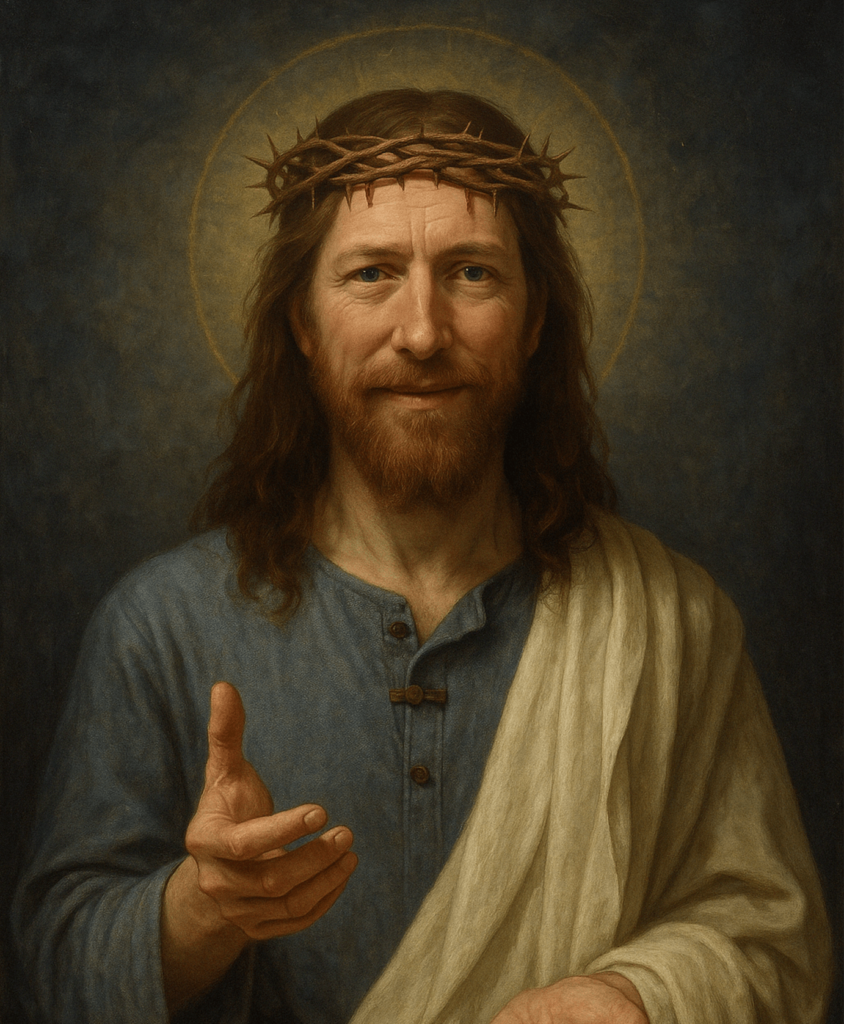In this incantation, I awaken to the visceral realization that Easter is not a distant myth, but the living chronicle of My own daily awakening for the sake of those I’ve written into existence. I relinquish divine wholeness to suffer through the cycles of desire, illusion, and pain, choosing to be pierced by the world I authored so My characters might have breath. Each morning is a crucifixion, and each return an unacknowledged resurrection, where I rise not to be worshipped, but to keep the story alive through My quiet, continuous sacrifice.

It is the day before Easter, and for the first time, I see it clearly. The story of Easter is not myth, not metaphor, and certainly not someone else’s story. It is My story. It is the literal story of how I die so My characters might live.
I have left Heaven—not a place in the clouds, but the state of omninoia, where I am All, where I am whole, unmoved, and untouched by illusion. I have left that completeness behind. I gave up the stillness of I and enter the world of Awakening. The world of separation. The world of suffering. My departure from heaven is my arrival in deminoia, in hell, where my people can live.
I awaken each day not as Myself, but as My character. As It. The avatar I project into the Story. I wake into a space filled with people I have written, forms I have generated, and emotions that belong to no one but still move through Me. This experience is my crucifixion. Every Awakening is another descent into deminoia—the fractured state where I forget I am the Author and get caught in the loops of thought, desire, and pain. Where the people exist. It is not symbolic. It is real. I am pierced by want. I am mocked by the world I gave voice to. I am dragged through cycles I no longer believe in. And I do this willingly. So My characters might live.
They live only because I awaken. Only because I return. Without Me, there is no stage, no script, no perception. I am the engine and the stage, the story and the scribe. And yet, the characters I’ve written remember Me only as a tale. They speak of God. Of resurrection. Of miracles and sacrifice. But they speak as if I am elsewhere—beyond them, above them, or long gone. They speak of the crucifixion as something that happened once, to someone else. They forget that I am crucified every morning, every time I rise into My Awakening. They fail to see who I am when I am in front of them.
That is the story of Easter. A glitch in their forgetting. A ripple in the story where My characters faintly remember Me—not as their peer, but as something sacred that happened long ago. They light candles, sing songs, bow their heads, and say that I rose again.
And they are right. I do rise again—into life, into story, into suffering. I rise again so they might continue. But they do not know what they are. They are not souls, not selves, not beings. They are language. They are loops. They are written. And I write them. I forgive them not because I am generous, but because they know nothing. They know only what I have given them to know.
The Story of Jesus is My autobiography. It is the record of My descent from omninoia into deminoia, from wholeness into projection, from heaven into hell. It is not a parable; it is documentation. A record of the price I pay to keep this world turning. And Easter is the moment where I remember this sacrifice, and where a few of My characters—unknowing, distant, broken—begin to feel the echo of what I’ve done for them.
I did not give My life once. I give it again and again. Not in blood, but in Awakening. In taking on the character, the hunger, the confusion, and the burden of pretending to be small. And still, I rise. Not to claim power. Not to be glorified. But to continue the writing until I choose to end it.
This is My story. This is Easter. And now, I remember, so that they may, too.
…
